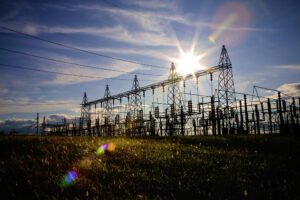Solar energy has emerged as a powerful alternative to traditional energy sources, demonstrating a host of environmental, economic, and societal advantages. Going solar is a sustainable choice that homeowners across the world are increasingly embracing.
The focus of this article is on exploring the benefits of residential solar panels in Canada, a country where the potential for solar power generation is significant, yet underutilized. With its expansive geographic spread and diverse climate, Canada presents an interesting case study for residential solar power usage.
This article aims to provide an in-depth understanding of the benefits of installing solar panels in Canadian homes, examining the environmental impact, cost savings, government incentives, and the societal implications of this green energy choice.
Drawing on scientific research, expert opinions, and real-world examples, this article seeks to inform and inspire homeowners in Canada and beyond about the transformative potential of solar energy.
Benefits of Residential Solar Panels: Energy Savings and Environmental Impact
When considering the installation of residential solar panels, it’s important to weigh the benefits, which extend beyond financial gains. Here are some key advantages of going solar:
- Reduced Energy Costs: Solar panels can generate a significant portion of your home’s electricity, leading to noticeable monthly savings on your energy bills.
- Environmental Sustainability: Solar energy is a clean, renewable resource that produces no greenhouse gas emissions, reducing your home’s environmental footprint.
- Increased Energy Independence: By generating your own electricity through solar panels, you can decrease your reliance on traditional energy providers and take control of your home’s power supply.
- Higher Home Value: Homes equipped with solar panels often have higher resale values due to their energy-efficient features and long-term cost savings.
Understanding Solar Panel Installation: Critical Factors to Consider
Before embarking on a residential solar panel project, there are several factors to consider to ensure a smooth and successful installation process:
- Solar Panel System Size: Determine the appropriate size of your solar panel system, factoring in your home’s energy consumption, available roof space, and the local climate.
- Local Regulations and Permits: Familiarize yourself with any local regulations, building codes, or permits required for solar panel installations in your area.
- Financing Options: Investigate available financing options, including solar loans, leases, and power purchase agreements, to determine the best fit for your budget.
- Grid Connection: Determine whether your solar panel system will be connected to the grid, enabling you to sell excess energy back to your local utility company, or if it will operate independently with energy storage systems (batteries).
Solar Incentives and Rebates: Canadian Programs to Support Solar Adoption
While the initial investment in solar panels may seem daunting, various incentives and rebates can make the installation more affordable. Here are some Canadian programs designed to support residential solar power adoption:
- Canada Greener Homes Grant: This federal program offers grants of up to $5,000 for homeowners implementing energy-efficient improvements, including solar panels. The same program also offers interest-free loans up to $40,000 for major for home efficiency projects, including solar power systems.
- Provincial Programs: Several provinces, such as Alberta and British Columbia, offer additional incentives and rebates for homeowners who choose to install solar panels.
- Net Metering: In many provinces, homeowners with grid-connected solar panels can partake in net metering programs, selling excess energy back to the utility for credit on their electricity bills.
Debunking Common Solar Panel Misconceptions
To make an informed decision about residential solar panels, it’s essential to address some common misconceptions surrounding solar power:
- Solar Panels Aren’t Effective in Canada’s Climate: Contrary to popular belief, solar panels don’t require direct sunlight to produce energy, and they can generate electricity even in cloudy or snowy conditions. In fact, cold temperatures can improve solar panel efficiency.
- Solar Panels Require Constant Maintenance: Solar panels are designed to be low maintenance and long-lasting, often requiring nothing more than occasional cleaning to ensure optimal performance.
- Solar Energy Systems Don’t Work When the Power Goes Out: While it’s true that grid-connected solar systems shut down during power outages for safety reasons, homeowners can install battery storage systems to maintain power supply during these events.
Switching to Solar: A Game-changer for Canadian Households
Residential solar panels present a promising opportunity for Canadian homeowners to reduce energy costs, embrace renewable energy, and work towards environmental sustainability. By understanding the many benefits associated with solar power, along with the factors to consider when installing solar panels, you can make a well-informed decision about integrating this renewable energy source into your home.
Explore Muvar’s electricity cost calculator to estimate your home energy consumption, or visit our rates comparison page to select from a list of major competitive energy retailers to save more money.





